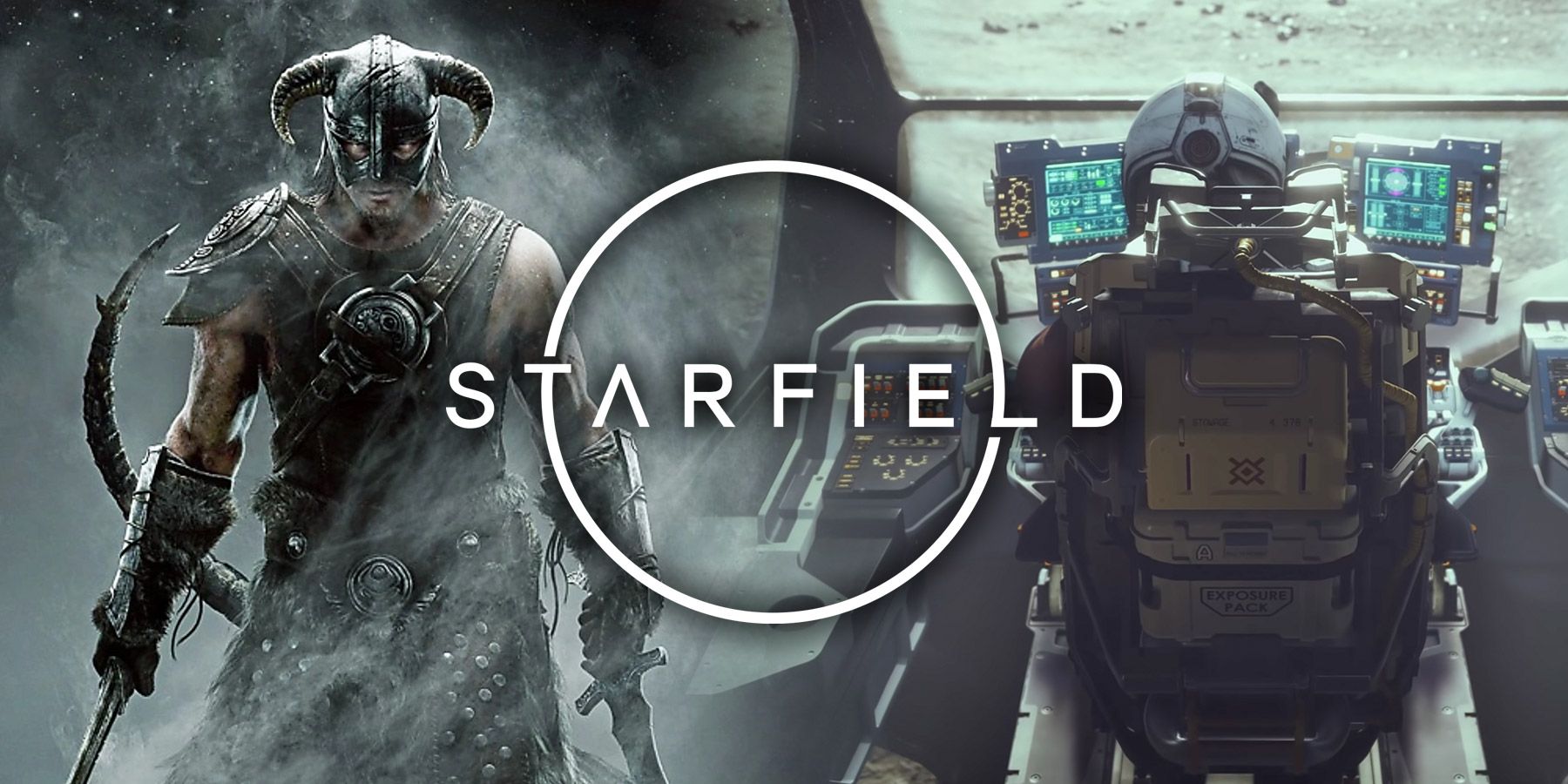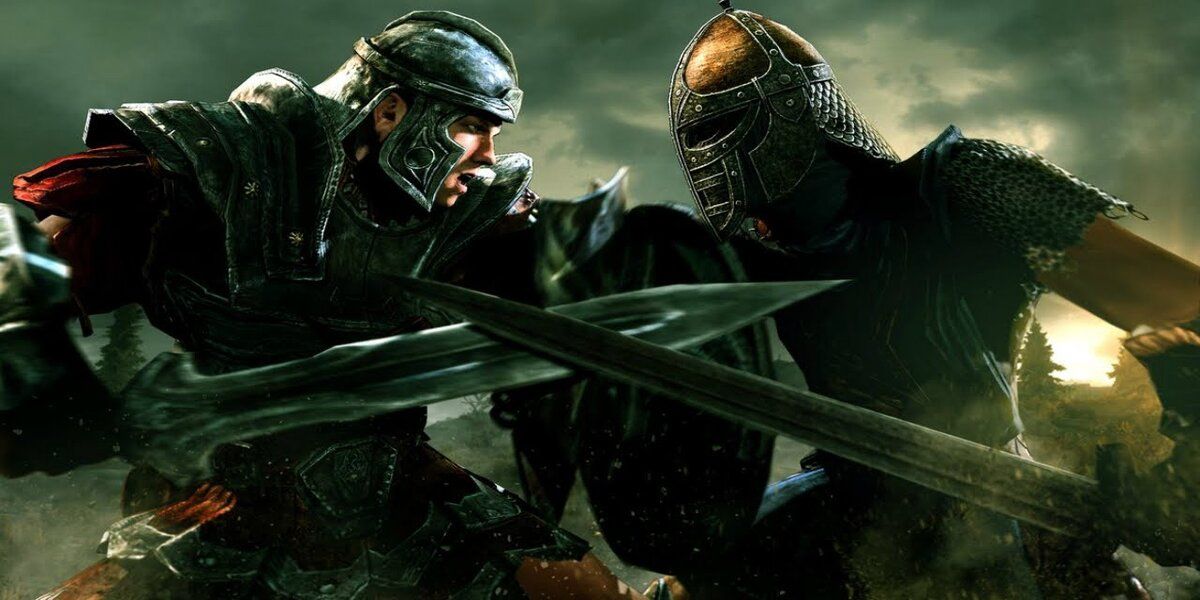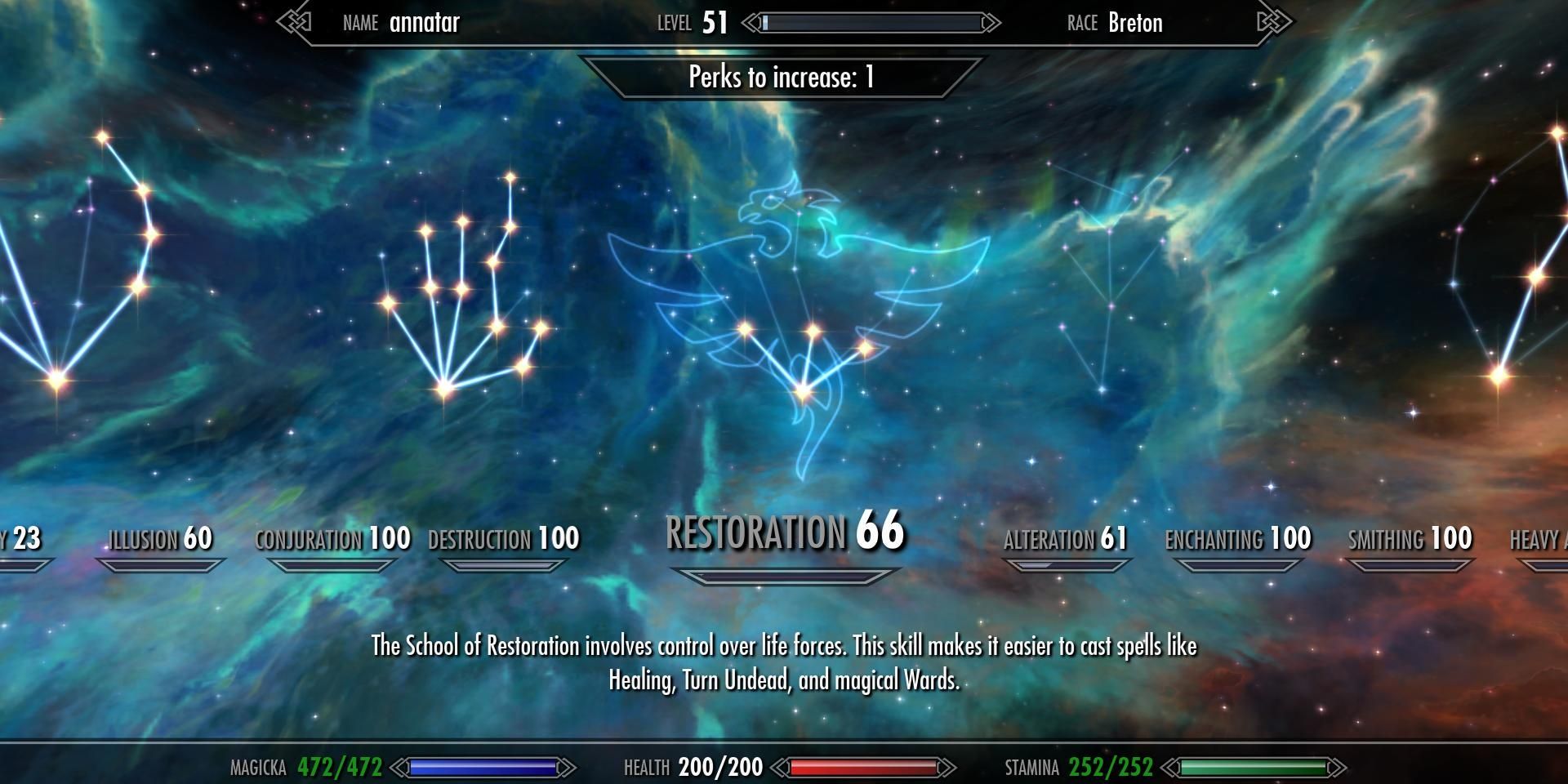Few games have had such an impact on the gaming industry and pop culture as a whole like The Elder Scrolls V: Skyrim has. It has been referenced and cited as inspiration countless times for many other games. Skyrim helped elevate Bethesda Softworks to a household name and even ten years later, it's still being played by millions worldwide. Bethesda's Todd Howard recently announced that the studio's first new IP, Starfield, would be more similar to Skyrim than anything else it has ever released.
While this is generally a good thing as Skyrim is generally considered to be Bethesda's last great RPG, the game has a lot of now-dated design choices that Starfield should avoid repeating. While some fears about Starfield have already been alleviated with the confirmation that the studio has finally created an entirely new game engine for it, dubbed the Creation Engine 2, there are still many mechanical and gameplay systems concerns.
Even duringSkyrim's first release, many fans were disappointed by the implementation of factions and reputation within the game. It can be quite immersion-breaking to wear aStormcloak outfitin the middle of Solitude and not get any notable reaction except the rare comment from a guard. Furthermore, the skill-trees, perks, and level-up system are a bit uninspired while also being intimidating to newcomers. Streamlining these systems forStarfield would do wonders for the game.
Skyrim's Factions and Reputations
Most of the factions in The Elder Scrolls V: Skyrim operated on a binary level. Either the player was involved with them or not; it was largely impossible to antagonize these factions with the exception of The Dark Brotherhood, which the player can outright destroy should they choose. If a player attacked a guild-mate, for example, players would just be temporarily removed from the faction until they pay a fine. Afterward, everything was back to normal, even if a non-essential NPC was killed. Even in the Civil War conflict, players can switch sides whenever they choose with no downsides. Such design choices can make the player feel like their own choice is fairly inconsequential to the game's world.
As for reputations within factions, they are essentially non-existent within Skyrim. Instead of feeling like the player was climbing the ladder to leadership, it often felt like progressing along a linear questline where failure was impossible and the result was always the same. Furthermore, it was very common for players to be the Guild Master of the Thieves Guild, Listener of The Dark Brotherhood, Arch-Mage of The College of Winterhold, Leader of The Companions, and The Dragonborn in one playthrough. The fact that all of these can be attained independently without reactions from the other factions is also immersion-breaking.
If Starfield wants to go back to its true RPG roots with choice-based progression, then it needs to flesh out its factions and reputations within each. This would mean joining all factions would be unlikely without careful play rather than just something that all players do to level up their characters. For example, perhaps joining The Crimson Fleet and The United Colonies would be impossible without making some progress and improving reputations for one or both. Bethesda seems to be going all out with Starfield's factions to create an immersive and diverse world for players to explore and get lost in. Hopefully, this includes meaningful faction choices that directly affect the world and its perception of the player.
Skills and Perks
While Skyrim was notable within The Elder Scrolls series for moving away from rigid classes and towards free-flowing skill trees instead, such a decision does impact role-playing to an extent. In previous Elder Scrolls games, players were locked into using the skills tied to the class they chose at the beginning of the game in order to level up. This means it was impossible to transition from a spell-slinging mage to a hammer-wielding warrior halfway through the playthrough. Skyrim made this possible by allowing all skill progress to count towards a level up, and simply using the skill increased it. This change is certainly helpful for players that are new to RPGs, but it also doesn't feel like an RPG if every character is essentially a jack-of-all-trades.
This issue is exacerbated by the perk system, especially with the six magic-based skill trees. Most of the skill trees follow the same format of small percentage increases until the skill is maxed out. There are exceptions to this that are mostly tied to Skyrim's stealth archer style of playing, as unique perks such as Eagle Eye and Steady Hand give the player a new way to use their weapon of choice. These perks are few and far between, however, as oftentimes it can feel like Skyrim is simply allowing the player to get stronger rather than the player actually getting stronger through mastery of a few select skills.
Starfield should instead borrow from contemporary RPGs like The Outer Worlds, which proves that a smaller number of well-thought-out perks and abilities is sometimes better. Instead of sticking with the illusion of complexity that Skyrim's skills and perks had, Starfield should branch out and experiment more. That's not to say that Starfield should use an old-school RPG system like Divinity Original Sin and Baldur's Gate; instead, the title should create a system that is in between those infinitely complex games while retaining the accessibility that Bethesda's newest games like Skyrim and Fallout 4 have.
The Elder Scrolls V: Skyrim is, without a doubt, an excellent video game. The fact that it has been released over half a dozen times proves this; people just can't get enough of Skyrim's incredible and immersive open world. Bethesda's first new IP in twenty-five years is confirmed to be borrowing a lot from Skyrim's design, but there are a few crucial aspects in which Starfield should improve what Skyrim began. The lackluster faction and reputation system as well as the illusion of complexity within Skyrim's skills and perks should be the first thing to be improved. As Starfield is rumored to be a more traditional RPG, it seems likely that these systems will get the much-needed face-lift they deserve.
Starfield releases November 11, 2022, on PC and Xbox Series X/S.



